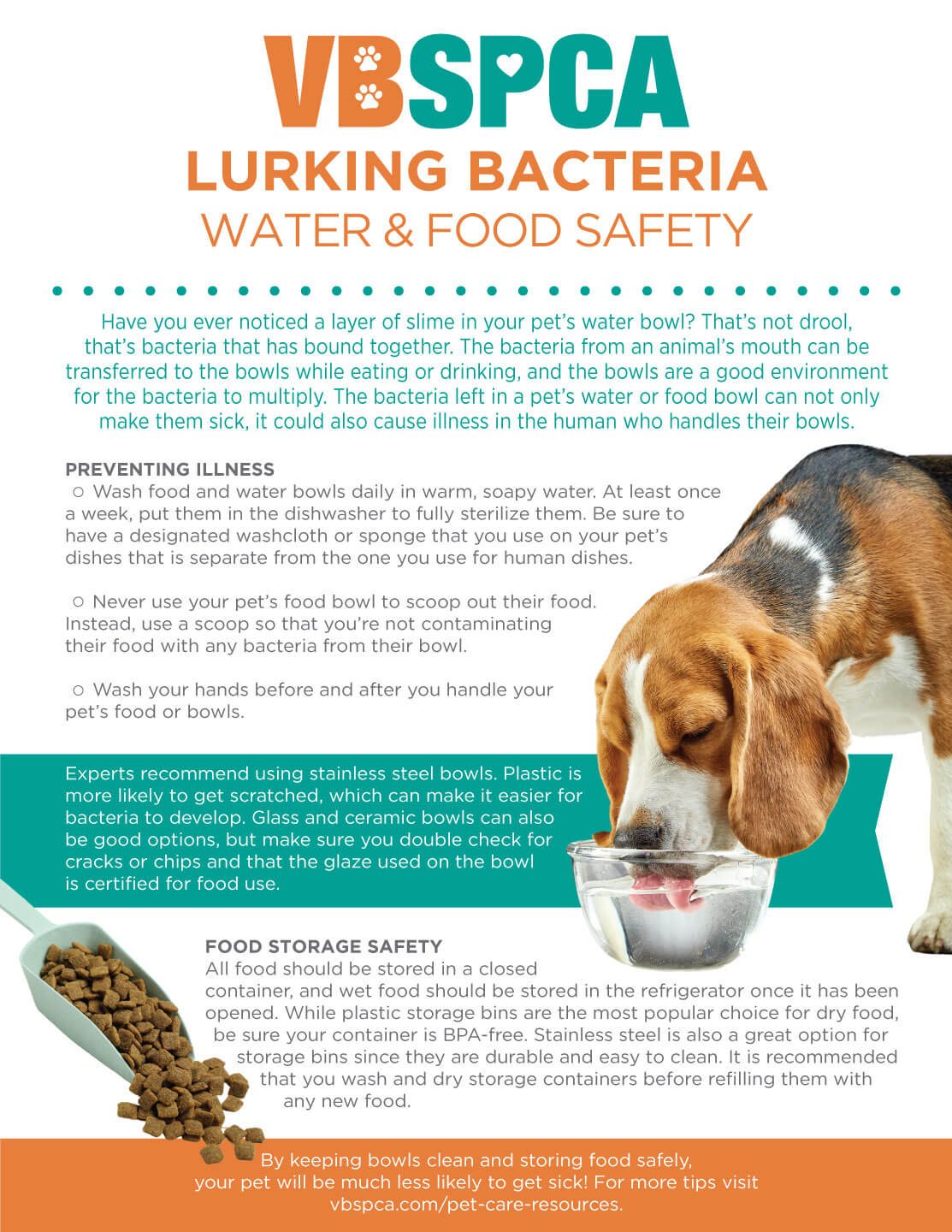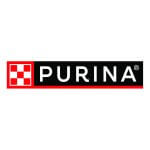Keeping your pet’s food and water bowls clean is just as important as providing your furry friend with fresh food and water each day. You wouldn’t eat off the same plate or drink out of the same glass without washing it day after day, and neither should your pet. Yet a recent study found that most pet parents don’t follow recommendations from the Food and Drug Administration that are designed to keep pets, and their people, healthy.
What’s Lurking in the Bowls
Have you ever noticed a layer of slime in your pet’s water bowl? That’s not drool, that’s a bunch of bacteria that has bound together. The bacteria from an animal’s mouth can be transferred to the bowls while eating or drinking, and the bowls are a good environment for the bacteria to multiply. The bacteria left in a pet’s water or food bowl can not only make them sick, it could also cause illness in the human who handles their bowls.
Preventing Illness
It only takes a few extra minutes to prevent illness in your pet, and you! Here are some tips from the FDA to keep those food and water bowls clean.
- Wash Daily
Wash food and water bowls daily in warm, soapy water. At least once a week, put them in the dishwasher to fully sterilize them. Be sure to have a designated washcloth or sponge that you use on your pet’s dishes that is separate from the one you use for human dishes.
- Have a Separate Scoop
Never use your pet’s food bowl to scoop out their food. Instead, use a cup, scoop, or spoon so that you’re not contaminating their food with any bacteria from their bowl.
- Keep Hands Clean
Wash your hands before and after you handle your pet’s food or bowls.
When it comes to picking out your pet’s bowls, experts recommend stainless steel. Plastic food and water bowls are more likely to get scratched, which can make it easier for bacteria to develop. Glass and ceramic bowls can also be good options, but make sure you double check for cracks or chips and that the glaze used on the bowl is certified for food use.
Food Storage Safety
Storing your pet’s food properly is also important for preventing sickness. All food should be stored in a closed container, and wet food should be stored in the refrigerator once it has been opened. While plastic storage bins are the most popular choice for dry food, be sure your container is BPA-free. Stainless steel is also a great option for storage bins since they are durable and easy to clean. It is recommended that you wash and dry storage containers before refilling them with any new food.
By keeping bowls clean and storing food safely, your pet will be much less likely to get sick!





Posted: June 21, 2022 by vbspcaadmin
Lurking Bacteria | Water & Food Safety
Keeping your pet’s food and water bowls clean is just as important as providing your furry friend with fresh food and water each day. You wouldn’t eat off the same plate or drink out of the same glass without washing it day after day, and neither should your pet. Yet a recent study found that most pet parents don’t follow recommendations from the Food and Drug Administration that are designed to keep pets, and their people, healthy.
What’s Lurking in the Bowls
Have you ever noticed a layer of slime in your pet’s water bowl? That’s not drool, that’s a bunch of bacteria that has bound together. The bacteria from an animal’s mouth can be transferred to the bowls while eating or drinking, and the bowls are a good environment for the bacteria to multiply. The bacteria left in a pet’s water or food bowl can not only make them sick, it could also cause illness in the human who handles their bowls.
Preventing Illness
It only takes a few extra minutes to prevent illness in your pet, and you! Here are some tips from the FDA to keep those food and water bowls clean.
Wash food and water bowls daily in warm, soapy water. At least once a week, put them in the dishwasher to fully sterilize them. Be sure to have a designated washcloth or sponge that you use on your pet’s dishes that is separate from the one you use for human dishes.
Never use your pet’s food bowl to scoop out their food. Instead, use a cup, scoop, or spoon so that you’re not contaminating their food with any bacteria from their bowl.
Wash your hands before and after you handle your pet’s food or bowls.
When it comes to picking out your pet’s bowls, experts recommend stainless steel. Plastic food and water bowls are more likely to get scratched, which can make it easier for bacteria to develop. Glass and ceramic bowls can also be good options, but make sure you double check for cracks or chips and that the glaze used on the bowl is certified for food use.
Food Storage Safety
Storing your pet’s food properly is also important for preventing sickness. All food should be stored in a closed container, and wet food should be stored in the refrigerator once it has been opened. While plastic storage bins are the most popular choice for dry food, be sure your container is BPA-free. Stainless steel is also a great option for storage bins since they are durable and easy to clean. It is recommended that you wash and dry storage containers before refilling them with any new food.
By keeping bowls clean and storing food safely, your pet will be much less likely to get sick!

Category: VBSPCA News
Search
Ways to Give
Annual Sponsors
To view our Donor Privacy Policy, click here.